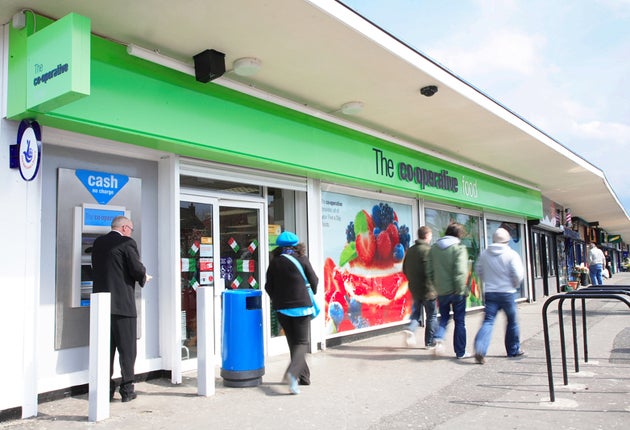Co-op: Boom in the gloom
With operations spanning insurance to retail and with over 100,000 employees, The Co-operative Group has become a world leader. All About Brands’ Chairman Allan Biggar explains how its CSR positioning has given it unrivalled competitive advantage.

The Co-op (or The Co-operative Group) is an iconic British brand with a 140 year history. With its humble beginnings serving as a co-operative among Rochdale-based retailers, it now stands as a striking success story, both commercially and socially.
Since its acquisition of the supermarket chain Somerfield, it has emerged as the UK’s fifth largest food retailer. At the same time, its financial services arm merged with Britannia building society, becoming the UK’s first ‘super-mutual’. And with those acquisitions, it’s now returning record revenues of over £13bn in 2009 and a healthy £400m+ profit.
It’s a particularly notable story in part because it is the world's largest consumer-owned business, with over 4.5 million members and 123,000 employees across all its businesses. The other notable aspect to this success story is its profound commitment to social values and the environment. The Co-op has become an outstanding example of a business which has put corporate social responsibility (CSR) at its core, and reaps significant benefits as a result.
The co-operative heritage of the business is an important driver in this. It was founded to create a multiplier effect for small retailers and to help build loyalty and cut costs. That history was leveraged by the Group in the 1980s when, the banking sector as a whole suffered a reputational crisis. The Co-operative Bank, the largest part of the Group, sought to address the poor standing of the industry as a whole by reinvigorating its brand with a modern interpretation of co-operative values. This led to an Ethical Policy, followed by an Ecological Policy and from that flowed the sustainable development framework which now underpins the business and its decision-making processes.
In other words, from the banking crisis of the late 1980s, tarnished by a number of scandals emerged the values of today’s Co-op while it seems from the financial crisis of the 2000s we now see a strong performing business whose leadership in sustainable development is now serving as a benchmark for late comers across all sectors.
So what lessons can be learnt from the Co-operative story?
Building a reputation as a responsible business sets you apart. It has differentiated the Co-operative helping it to appeal to a thoughtful, and often more loyal, customer base. In addition, companies often favour suppliers who demonstrate responsible policies, as this can have a positive impact on how they are perceived by their peers.
Increasingly some customers don't just prefer to deal with responsible companies, but insist on it. ISO accreditation, for example, provides a kitemark which demonstrates due process and standards and is required by companies looking for reliable suppliers. And ISO’s 14001 environmental certification is fast becoming a need to do for tender processes for both manufacturing and service industries alike.
The Co-operative Group places a strong emphasis on its corporate social responsibility and publishes detailed 'warts and all' reports on its performance on a wide range of criteria - from animal welfare to salt levels in its pizzas. While the reports don’t always detail success, they do show there’s a commitment to do the right thing and to behave honourably. And, like many companies today, they do it because they know customers want to know what their supplier is up to.
Perhaps the most compelling reason is one of cost. Reducing resource use, waste and emissions doesn't just help the environment - it saves money too. In their 2009 report, the Co-operative crows at its success in reducing packaging by 15 per cent, thereby reducing cost and benefitting its membership.
The Co-operative Group is not dissimilar to Bourneville, Cadbury’s and other great British brands which historically had a societal commitment. But unlike many, the Co-op is still around today, its corporate social responsibility remains at the heart of its operations and, as a result, it’s now a business to be reckoned with.
For more information and advice for SMEs, visit www.freshbusinessthinking.com
Subscribe to Independent Premium to bookmark this article
Want to bookmark your favourite articles and stories to read or reference later? Start your Independent Premium subscription today.

Join our commenting forum
Join thought-provoking conversations, follow other Independent readers and see their replies